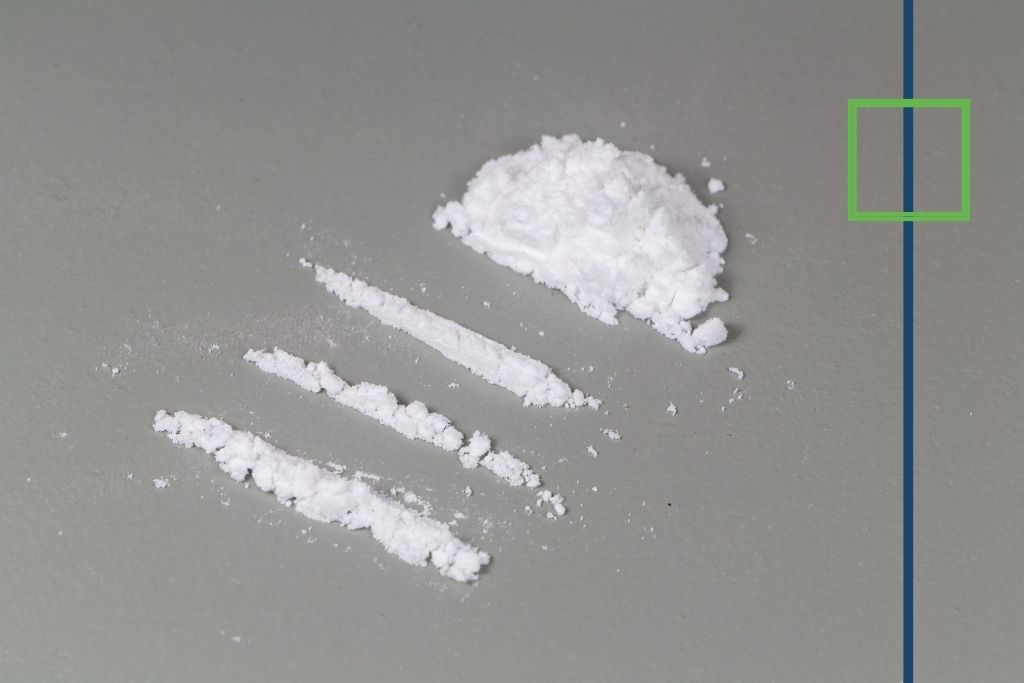Amphetamine Use
Amphetamines are prescription drugs. They can be legal or illegal. They are legal when prescribed by a doctor and used to treat health problems such as obesity, narcolepsy, or attention deficit hyperactivity disorder (ADHD). However, using amphetamines can lead to addiction. Amphetamines are illegal when used without a prescription to get high or improve performance.
They can be used in different ways:
- Swallowed
- Dabbed onto the gums
- Inhaled through the nose (snorted)
- Injected into a vein (shooting up)
- Smoked
Some examples of prescription amphetamine drugs include:
- Adderall (amphetamine-dextroamphetamine)
- Evekeo (amphetamine sulfate)
- Desoxyn (methamphetamine hydrochloride)
There are also illegal methamphetamines, which are drugs like crystal meth or speed.

Stimulants such as amphetamine (Adderall) and methylphenidate (Ritalin and Concerta) are used in attention deficit hyperactivity disorder treatment (ADHD treatment). Used under prescription, stimulants can be safe and effective.
Amphetamine sulphate, or speed, is also used for recreational and non-medical purposes. It can lead to euphoria, and it suppresses the appetite, which can lead to weight loss. Used outside the medical context, illegal stimulants can have severe adverse effects.

Get Your Life Back
Find Hope & Recovery. Get Safe Comfortable Detox, Addiction Rehab & Mental Health Dual Diagnosis High-Quality Care at the We Level Up Treatment Centers Network.
Hotline (877) 378-4154Medical Uses of Amphetamines
Amphetamine activates receptors in the brain and increases the activity of a number of neurotransmitters, especially norepinephrine and dopamine. Dopamine is associated with pleasure, movement, and attention. Amphetamine has been trialed for a wide variety of conditions. It is mainly used to treat ADHD and, rarely, depression. In the past, it has been used to treat narcolepsy and to help with weight loss, but this is less common now [1].
Attention deficit hyperactivity disorder (ADHD)
ADHD is characterized by hyperactivity, irritability, mood instability, attention difficulties, lack of organization, and impulsive behaviors. ADHD often appears in children, but it can continue into adulthood. Amphetamines reverse some of these symptoms and have been shown to improve brain development and nerve growth in people with ADHD.
Long-term treatment with amphetamine-based medication appears to prevent unwanted changes in brain function and structures. Scientists found that the brain structures of people who took stimulants for ADHD were more likely to resemble those without the condition than those with ADHD who did not use the drugs.
Adults with ADHD might benefit from short-term use of amphetamines, but they were unlikely to persist with the treatment because of adverse effects. However, those who use mixed amphetamine salts were more likely to continue with the treatment.
Narcolepsy
A person with narcolepsy will experience excessive daytime sleepiness and irresistible sleep episodes, called “sleep attacks.” In a person with this condition, strong emotions can trigger a sudden loss of muscle tone or cataplexy. This condition causes a person to collapse and possibly fall down. It also involves frequent and unexpected bouts of sleep.
Amphetamines and amphetamine derivatives have been used in the past to treat narcolepsy. However, due to concerns over their side effects, amphetamines are increasingly being replaced by modafinil, a medication that promotes wakefulness.
Obesity
Under the name Benzedrine, amphetamines were first used to treat obesity in the 1930s, due to their appetite-suppressing capabilities. Fears of amphetamine effects and its potential for addiction and abuse caused them to fall out of favor for this purpose.
In the 1950s, reports of malnutrition, psychosis, and depression on amphetamine withdrawal caused doctors to stop prescribing amphetamines for weight loss. Currently, medical professionals do not recommend using amphetamines and their derivatives to help reduce obesity.
However, in 2015, after carrying out a small study, researchers suggested that dexamphetamine might be a safe and effective way of boosting people’s motivation for lifestyle changes that can lead to weight loss.
They proposed a six-month use of amphetamine to help people who have not responded to other treatment to improve their diet and increase exercise levels. They say this could help curb obesity and related complications, such as diabetes and cardiovascular disease.

Depression
From the 1930s, amphetamine was used to treat obsessive-compulsive disorder (OCD), and schizophrenia. However, in the 1950s and 1960s, amid growing concern about its adverse effects, it was replaced by newly available antidepressants.
In rare cases, amphetamines are used alongside standard antidepressants to treat some types of depression that do not respond to other treatments, especially in people who also experience fatigue and apathy.
In a study that followed 65 people taking amphetamines alongside normal medication, 38 “showed significant improvement, in particular with respect to energy, mood, and psychomotor activity.”
Get Help. Get Better. Get Your Life Back.
Searching for Accredited Drug & Alcohol Rehab Centers Near You? Or Mental Health Support?
Even if you have failed previously, relapsed, or are in a difficult crisis, we stand ready to support you. Our trusted behavioral health specialists will not give up on you. Call us when you feel ready or want someone to speak to about therapy alternatives to change your life. Even if we cannot assist you, we will lead you wherever you can get support. There is no obligation. Call our hotline today.
FREE Addiction Hotline – Call 24/7The Effects of Amphetamine Use
CNS stimulants, including amphetamine extended-release oral formulations, other amphetamine-containing products, and methylphenidate, have a high potential for abuse and dependence. Pay particular attention to the possibility of people obtaining amphetamines for distribution to others or for non-therapeutic use.
Side effects of amphetamine requiring immediate medical attention
Along with its needed effects, amphetamine may cause some unwanted effects. Although not all of these side effects may occur, if they do occur they may need medical attention.
More common side effects of amphetamine:
- Agitation
- Anxiety
- Bladder pain
- Bloody or cloudy urine
- Crying
- Delusions of persecution, mistrust, suspiciousness, or combativeness
- Difficult, burning, or painful urination
- False or unusual sense of well-being
- Feeling of unreality
- Frequent urge to urinate
- Lower back or side pain
- Mental depression
- Nervousness
- Quick to react or overreact emotionally
- Rapidly changing moods
- Sense of detachment from self or body
Get emergency help immediately if any of the following symptoms of overdose occur while taking amphetamine:
Symptoms of amphetamine overdose:
- Aggressive
- Angry
- Confusion
- Dark urine
- Dizziness, faintness, or lightheadedness when getting up suddenly from a lying or sitting position
- Fainting
- Fast breathing
- Fast, slow, or irregular heartbeat
- Loss of consciousness
- Muscle cramps, spasms, pain, or stiffness
- Nausea
- Restlessness
- Seeing, hearing, or feeling things that are not there
- Seizures
- Stomach cramps
- Sweating
- Tremor
- Unusual tiredness or weakness
- Vomiting
Other Amphetamine Effects of Long-Term Use
Further, individuals who abuse amphetamines may have so much energy that they may not notice when they are becoming hungry or thirsty. This can result in dramatic weight loss. However, an increase in body temperature, which is one of the side effects of amphetamine use, in combination with dehydration, can have deadly consequences.
The effects of amphetamine on the addict’s personality are similarly harsh and harmful. When heavily used or when it is abused at length, serious mental effects frequently occur, such as aggressive, paranoid hostility. There is even a form of psychosis that can occur as an effect of extended amphetamine abuse. Some people suffer from hallucinations that could prompt dangerously violent behavior.
Physically, the effects of heavy amphetamine abuse include chest pain, heart failure, and convulsions. While the person still uses the drug, he is likely to be unaware of the serious effects of the drug. But if he tries to stop, he is going to find out what is really going on.
Comfortable Facilities & Amenities
High-Quality Addiction & Mental Health Rehabilitation Treatment
Rehab Centers TourRenowned Addiction Centers. Serene Private Facilities. Inpatient rehab programs vary.
Addiction Helpline (877) 378-4154Proven recovery success experience, backed by a Team w/ History of:
15+
Years of Unified Experience
100s
5-Star Reviews Across Our Centers
10K
Recovery Success Stories Across Our Network
- Low Patient to Therapist Ratio
- Onsite Medical Detox Center
- Comprehensive Dual-Diagnosis Treatment
- Complimentary Family & Alumni Programs
- Coaching, Recovery & Personal Development Events
What is Cocaine?
Cocaine is a severely addictive stimulant drug made from the leaves of the coca plant. It increases the natural chemical messenger (dopamine) levels in brain circuits related to the control of movement and reward. Although health care providers can use it for valid medical purposes, such as local anesthesia for some surgeries, recreational cocaine use is illegal.
No matter how much cocaine is taken, it is dangerous. Some of the most common serious problems include heart attack and stroke. Addiction recovery professionals recommend facing cocaine addiction with a long-term treatment plan that promotes positive decision-making and overall health improvements that include learning coping skills.
People snort cocaine powder through the nose, or they rub it into their gums. Others dissolve the powder and inject it into the bloodstream. Some people inject a combination of cocaine and heroin, called a Speedball. The high a single dose of cocaine produces lasts only a few minutes to an hour, encouraging repeated use, which can result in a cocaine overdose. A cocaine overdose can result in permanent physical damage to the brain, heart, and, circulatory system. Stopping cocaine can cause withdrawal symptoms like fatigue, sleep disturbances, and agitation. Cocaine addiction is difficult to recover from, but it can be treated.
Is Cocaine an Amphetamine? Amphetamines Vs Cocaine
Cocaine is naturally derived from the coca plant. Amphetamines, on the other hand, are similar to the ephedrine and are synthetically made. Both of these drugs are offered, and used, in numerous forms, and each form has its differences.
Amphetamines and cocaine have very similar effects on the brain and normally attract similar individuals who use each. Amphetamines and cocaine both increase the circulating levels of certain neurotransmitters within the brain. Dopamine, norepinephrine, and serotonin are stimulated and increase inactivity when amphetamines are used.
Cocaine blocks the reuptake of certain neurotransmitters, particularly dopamine, causing the levels to rise. Even though the physiological results between cocaine and amphetamine are nearly similar, the effects of amphetamine may be felt for several hours, whereas effects of cocaine are usually present for an hour or less.
Historically, both drugs had their applications. Cocaine was isolated from coca leaves and began to be used as an anesthetic. Sigmund Freud recommended cocaine’s power in aiding depression and morphine dependence. However, once he understood the side effects, he no longer promoted the drug. Amphetamines were used to help soldiers in World War II overcome fatigue.
In conclusion, both of these drugs have similar effects on the brain and body, but unlike cocaine, amphetamines are frequently prescribed in medical applications to help aid ADHD and other disorders.
World-class, Accredited, 5-Star Reviewed, Effective Addiction & Mental Health Programs. Complete Behavioral Health Inpatient Rehab, Detox plus Co-occuring Disorders Therapy.
CALL (877) 378-4154End the Addiction Pain. End the Emotional Rollercoaster. Get Your Life Back. Start Drug, Alcohol & Dual Diagnosis Mental Health Treatment Now. Get Free No-obligation Guidance by Substance Abuse Specialists Who Understand Addiction & Mental Health Recovery & Know How to Help.
Addiction to Cocaine and Amphetamine
Addiction to psychoactive drugs like amphetamine and cocaine is one of the foremost public health problems in the United States. Cocaine and amphetamine share two critical properties with other addictive drugs: they are reinforcing when administered acutely (i.e., drug use entails repeated drug use) and produce compulsive use if administered chronically with adequate dose and frequency.
Drugs such as cocaine and amphetamine are thought to be addictive because they produce significant molecular adaptations both within and outside the mesoaccumbens circuitry that alter the function of neurons that regulate motivated behavior and emotion [2].
Both amphetamines and cocaine can cause serious short-term and long-term health effects. For example, they both result immediately in an increased heartbeat, which can be dangerous for anyone who suffers from heart problems or high blood pressure [3].
They also affect an individual’s ability to make rational decisions and can result in dangerous behavior that can be life-threatening, such as operating a vehicle. In addition, stimulants can lead to shortness of breath and difficulty breathing, which is even more serious for anyone suffering from a respiratory condition. Prolonged abuse of stimulants can result in permanent brain damage that may be impossible to reverse if left untreated over time.
With all the long list of prescribed and illegal stimulants, you might be confused and may have asked, Is cocaine an amphetamine? The answer is “no, ” as you have learned from this article. Cocaine produces many of the same effects as amphetamines. However, it does not come from the same substance as amphetamines.
Treatment begins with recognizing there is a problem. Once you decide you want to do something about your drug use, the next step is to get help and support. If you or a loved one is struggling with stimulant abuse issues and addiction. We Level Up NJ addiction specialists are standing by to help.
Reclaim Your Life
With all the long list of prescribed and illegal stimulants, you might be confused and may have asked, Is cocaine an amphetamine? The answer is “no.”, as what you have learned from this article. Cocaine produces many of the same effects as amphetamines. However, it does not come from the same substance as amphetamines.
Treatment begins with recognizing there is a problem. Once you decide you want to do something about your drug use, the next step is to get help and support. If you or a loved one is struggling with stimulant abuse issues and addiction. We Level Up NJ addiction specialists are standing by to help.

Experience Transformative Recovery at the We Level Up Treatment Center.
See our authentic success stories. Get inspired. Get the help you deserve.



Start a New Life
Begin with a free call to an addiction & behavioral health treatment advisor. Learn more about our dual-diagnosis programs. The We Level Up treatment center network delivers various recovery programs at each treatment facility. Call to learn more.
- Personalized Care
- Caring Accountable Staff
- Comfortable Amenities
- Licensed & Accredited
- Renowned w/ 5-Star Reviews





